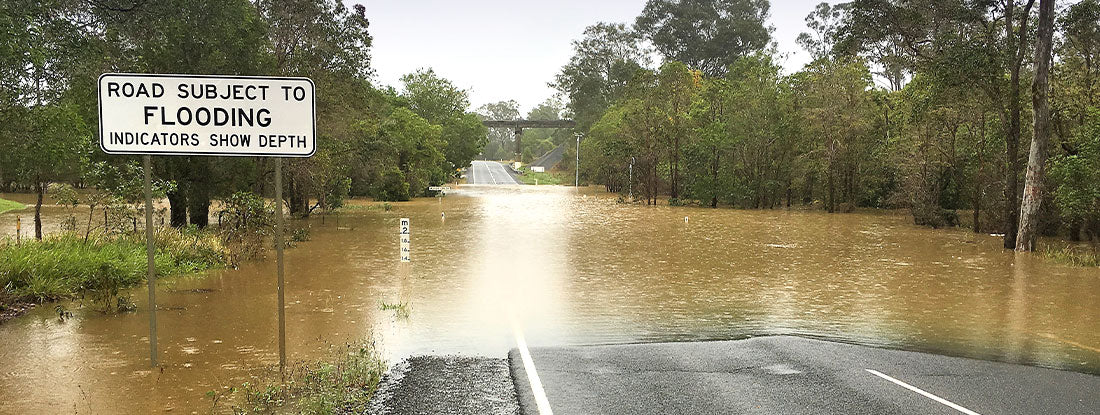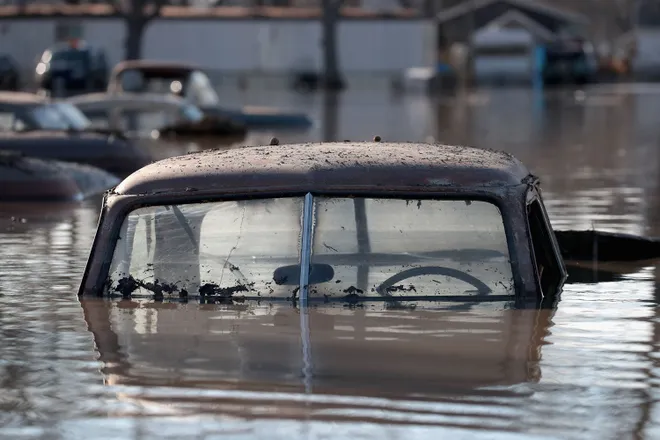Recent Posts
- Essential Earthquake Safety Information: How to Protect Yourself and Your Loved Ones
- What to Do In an Earthquake - The Complete Guide
- Georgia Resident Uses STOP THE BLEED® Training to Save Neighbor
- Emergency Preparedness for Older Adults
- Don't Be a Hot Dog: How to Keep Your Pets Safe This Summer
Before, During & After: The Keys to Flood Safety

We understand that flooding can be unpredictable and frightening, and we want to provide you with the information you need to feel informed and safe. But fear not! Quake Kare is here to help you prepare yourself, your home, and your family for the potentially dangerous spring floods.
Preparing Your Home for Spring Flooding
Spring flooding can strike without warning and leave a lot of damage in its wake. Being prepared is key to keeping your family safe and protecting your home. The first step to flood safety is knowing if you're at risk. Check with your local government to find out which areas of your county may be vulnerable, and if you live near a river or stream, be aware of flood-prone areas.
Once you're aware of any potential risks, it's time to take action. If possible, move furniture, electronics, and valuables to higher levels so they'll be safe in the event that flooding does occur. Make sure to check your homeowner’s insurance policy; many do not cover flooding so additional coverage may be necessary for further protection.
Finally, create an emergency plan for your household. Include your family members, pets and any other essentials that you would want in the event of a flood emergency. Knowing what to do during an unexpected emergency can make all the difference in staying safe and minimizing damage from the spring flooding season.
What to Do During a Flood
When it comes to floods, you don’t want to wait until it’s too late. Acting quickly and safely is key to avoiding injury or worse. Here are some tips for staying safe during a flood:
Remember that just six inches of moving water can knock you down, and one foot of moving water can sweep your vehicle away. When you encounter flooded areas, stay out of them.

As the flooding progresses, move to higher ground if possible. Keep an eye on the rising water levels; never try to cross where the water is higher than waist level.
Tune in to NOAA Weather Radio All Hazards before a flood watch or warning is issued so that you can stay updated on the situation as it develops.
If you’re stuck in a building, do not attempt to walk through any flooded areas as there could be sharp objects underwater that could injure you, or electrical wires that may still be live and pose an electrocution risk.
Clean Up: The Detailed Recovery Process
After a flood is one of the most important times for you to stay alert. Be sure to follow any instructions from authorities, and remember that safety should be your first priority. Here's what you should do after a flood:
Avoid fires and other sources of ignition, because there could be hazardous materials in the area that could cause an explosion or fire.
Watch out for animals, especially snakes, which are active after a flood; they're not only looking for higher ground—they might be looking for a new home!
Assess the damage done to your property and take photos if possible; this will help with filing insurance claims later on down the road.
Disinfect everything that got wet and discard items that can't be cleaned or are likely to mold; wet carpeting, mattresses and upholstered furniture should all be thrown away if possible.
Take extra caution when cleaning up—flood waters can contain dangerous debris like broken glass and other sharp objects, and wear protective gear like rubber gloves when handling potentially hazardous materials.
Have an emergency preparedness kit on hand in case of any other disasters - Quake Kare has you covered with the supplies you need in case of an emergency!
It's spring and while we may celebrate the beauty of nature, it's also important to be prepared for potential flooding in your area. Preparing for a flood requires knowledge and understanding of the different stages so you can be sure to plan and act accordingly.
Make sure to stock up on emergency supplies that can last at least 72 hours, such as food, water, and additional medications, and check your state and local emergency webpages to stay informed. So arm yourself with information and stay safe this spring!


